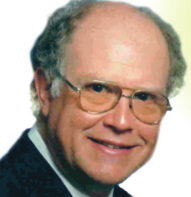The Harvard Classics still give us insights into how to navigate life
When I was a kid, one of my uncles had a beautiful book cabinet full of leatherbound books. I was completely enthralled and resolved to buy such books when I grew up. For various reasons, I never did. In fact, at this point I have too many books, so now I buy them electronically.
The collection was called the Harvard Classics. Harvard President Charles W. Eliot believed “devoted” reading of certain books would give someone a fine classical education without going to college.
The first volumes were published in 1909 and the balance in 1910. The series included a reading list, which asked people to read 15 minutes per day.
The great philosophers, Plato, Socrates and Aristotle are just a few of the authors. The collection explores our thinking through the ages.
Amazon Kindle recently offered the series for $2.97! I bought it immediately, and I’m glad I did. It takes up less room on my iPhone and iPad than a hard copy set on a bookshelf.
The
first book in the series is Benjamin Franklin’s Autobiography. I had
read it in high school and started scanning through it. It’s so good, I
got sucked in and am reading it again. Franklin begins his story when he
was a teenager and explains how he learned. He unabashedly includes his
mistakes and the lessons learned from them.
As
a young fellow, he was rather irascible and unpopular. One lonely
evening, he developed a list of 13 qualities which he felt would make
him more likable if he acquired them. The first week, he consciously
practiced the first quality; the second week, he went on to the second
and continued till he had all 13. Then he started all over. He was able
to practice his self-improvement program four times a year.
His business activities greatly profited, as did our country.
When
President Clinton’s Ambassador Pamela Harriman died suddenly in 1997,
French President Jacques Chirac said she was the best ambassador from
the U.S. since Benjamin Franklin.
This is just one example of the wisdom in those books. I’ve read many of them, and it looks like I’ll be reading them again.
To me, few things are more depressing than
spreadsheet managers. No doubt the financial implications of any
decision are tremendously important, but in many cases, they’re just
part of the picture. There are many crucial questions that don’t lend
themselves to a spreadsheet analysis. For instance, is your product or
service good for anyone? Will it make them better?
Years
ago, I was in Australia and had favorably attracted the attention of
Philip Morris. I told the manager I’d help them get the contract, but I
wanted no part of the delivery. “Oh no you don’t, they want you!” I was
told.
“Sorry, I can’t
get excited about helping anyone improve the process of making
cigarettes.” He couldn’t understand, as this project would have been so
profitable. Just because something’s profitable doesn’t necessarily make
it right. Where do we draw the line?
Admittedly, that’s a personal decision for each of us, but too many people never examine the issue or make that decision.
One
evening, I found myself having dinner with the CEO of a company that
makes junk food. We had a delightful conversation, and I asked if their
products were good for anyone. “I won’t let my kids eat them,” he said.
He knew, and as long as his kids were OK, who cares about the rest of
the world?
Pornography
must be profitable as there seems to be an awful lot of it. Would you
want to help someone make better porn? How about excessively violent
video games? How about a welladvertised weight loss pill that doesn’t
actually work?
The
list could go on and on. They’re all legal, but are they really the
kinds of things you’d want to do just because you can make a lot of
money?
The Harvard
Classics would help us learn how people have wrestled with such
questions through the ages and help us make the kinds of decisions that
would be much more beneficial to us and everyone else in the long run.
Ronald
J. Bourque, a consultant and speaker from Salem, has had engagements
throughout the United States, Europe and Asia. He can be reached at
603-898-1871 or RonBourque3@gmail.com.